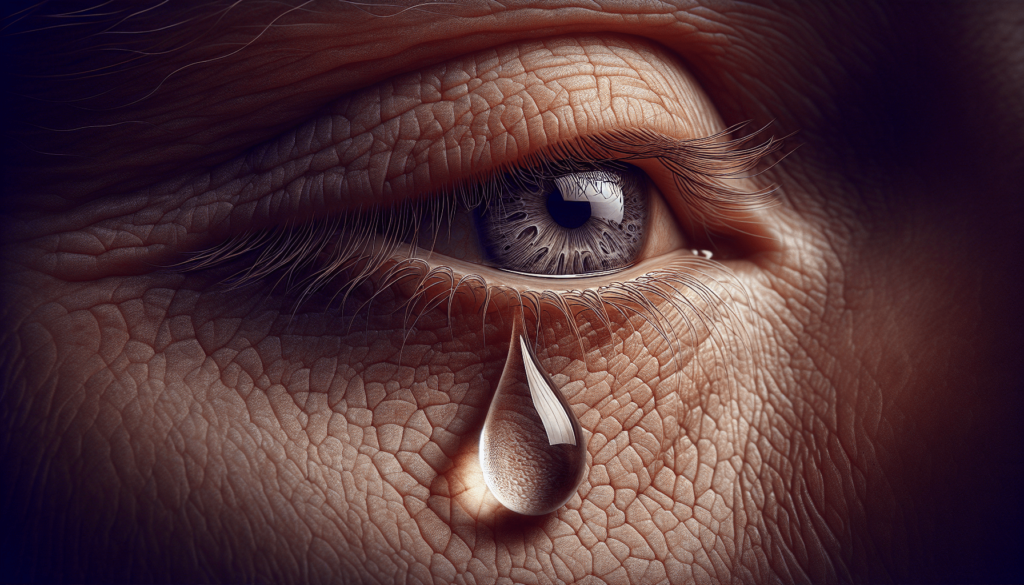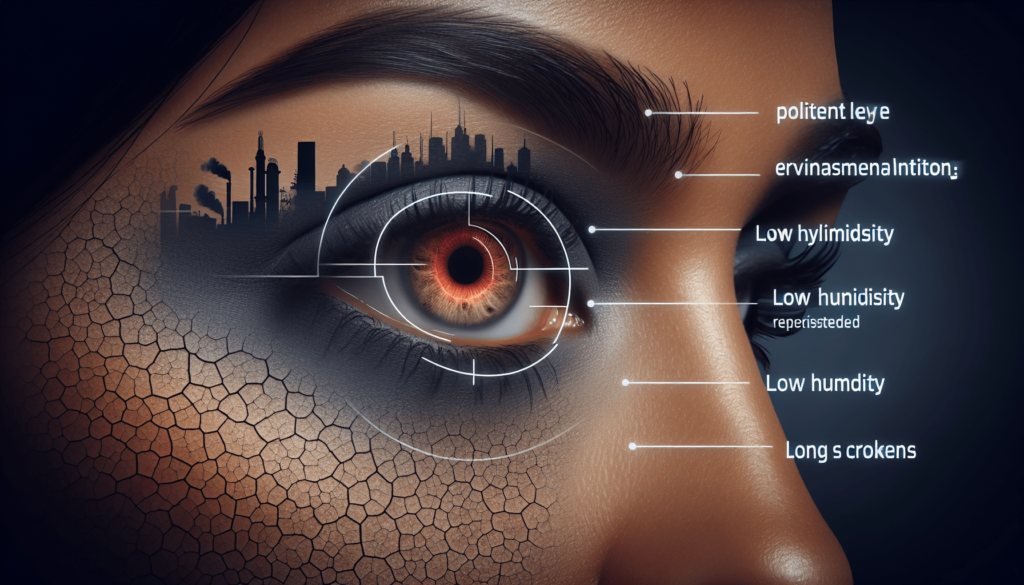Welcome to the article that explores the intriguing question: “Can Certain Medications Lead To Dry Eye Symptoms?” We will delve into the relationship between medication use and dry eye syndrome, uncovering common culprits and potential solutions to alleviate these uncomfortable symptoms. Stay tuned to learn more about how your medications may be affecting your eye health.
Can Certain Medications Lead To Dry Eye Symptoms?
Have you ever experienced dry, irritated eyes that just won’t seem to go away? It could be possible that certain medications you are taking are the culprit. In this article, we will explore the connection between certain medications and dry eye symptoms, as well as what you can do to alleviate these symptoms.
Understanding Dry Eye Syndrome
Dry eye syndrome, also known as dry eye disease, is a common condition that occurs when your eyes do not produce enough tears or when the quality of your tears is poor. This can lead to symptoms such as irritation, redness, grittiness, and blurry vision.
If you are experiencing any of these symptoms, it is important to speak to your healthcare provider to determine the underlying cause and find the right treatment plan.
Types of Medications that Can Contribute to Dry Eye Symptoms
Certain medications have been known to contribute to dry eye symptoms by either reducing tear production or affecting the quality of tears. Here are some common types of medications that may lead to dry eye:
-
Antihistamines: These medications are often used to treat allergies and cold symptoms but can also have a drying effect on the eyes by reducing tear production.
-
Decongestants: Decongestants are commonly used to relieve nasal congestion but can also lead to dry eye symptoms due to their drying effect on mucous membranes, including those in the eyes.
-
Hormone replacement therapy: Certain hormone replacement therapies, especially those containing estrogen, can affect tear production and quality, leading to dry eye symptoms.
-
Antidepressants: Some antidepressant medications, such as selective serotonin reuptake inhibitors (SSRIs), can cause dry eye by altering neurotransmitter levels that regulate tear production.
-
Diuretics: Diuretics, also known as water pills, are used to treat conditions like high blood pressure and edema by increasing urination. This can lead to dehydration and dry eye symptoms.
How Medications Can Impact Tear Production
Medications can impact tear production in several ways, including:
-
Decreased tear production: Some medications can directly reduce the production of tears by affecting the tear glands in the eyes. This can lead to dryness and discomfort.
-
Altered tear composition: Certain medications can alter the composition of tears, making them less effective at lubricating the eyes and protecting them from irritants. This can result in dryness and irritation.
-
Increased tear evaporation: Some medications can increase tear evaporation by affecting the lipid layer of the tear film, which is responsible for preventing tears from evaporating too quickly. This can lead to dry eye symptoms.
It is important to note that individual responses to medications can vary, and not everyone who takes these medications will experience dry eye symptoms. However, if you are experiencing dry eye symptoms while taking any of these medications, it is essential to speak to your healthcare provider about potential alternatives or ways to manage these symptoms.
Tips for Alleviating Dry Eye Symptoms
If you are experiencing dry eye symptoms due to your medications, there are several tips you can follow to help alleviate these symptoms:
-
Use artificial tears: Artificial tears can help lubricate and moisturize the eyes, providing relief from dryness and irritation. Choose preservative-free artificial tears for long-term use.
-
Stay hydrated: Drinking an adequate amount of water can help keep your body hydrated, including your eyes. Aim to drink at least eight glasses of water per day.
-
Take breaks from screens: Staring at digital screens for prolonged periods can worsen dry eye symptoms. Follow the 20-20-20 rule by looking away from your screen every 20 minutes at something 20 feet away for at least 20 seconds.
-
Use a humidifier: Using a humidifier in your home or workplace can help add moisture to the air, preventing dryness and irritation in your eyes.
-
Wear sunglasses: Wear sunglasses that wrap around your eyes to protect them from wind, dust, and UV rays, which can exacerbate dry eye symptoms.
When to Seek Medical Help
While mild dry eye symptoms can often be managed with over-the-counter remedies, there are cases where medical intervention is necessary. Make sure to seek medical help if you experience:
- Severe eye pain
- Sudden changes in vision
- Sensitivity to light
- Persistent redness or swelling of the eye
- Eye discharge
Your healthcare provider can assess your symptoms, determine the underlying cause, and recommend appropriate treatment options to alleviate your dry eye symptoms.
Conclusion
In conclusion, certain medications can indeed lead to dry eye symptoms by affecting tear production and quality. If you are experiencing dry eye symptoms while taking medications, it is crucial to speak to your healthcare provider to determine the underlying cause and find the right treatment plan. By understanding the connection between medications and dry eye symptoms, you can take steps to alleviate your discomfort and protect your eye health. Remember, your eyes deserve the best care, so don’t hesitate to seek help when needed.


